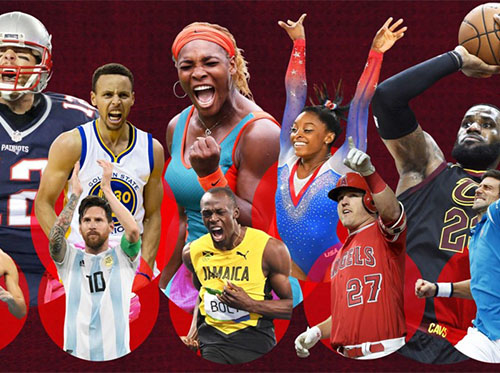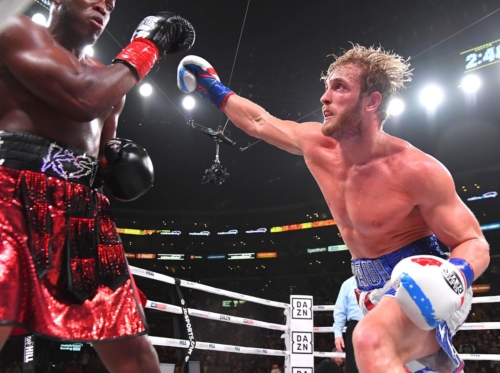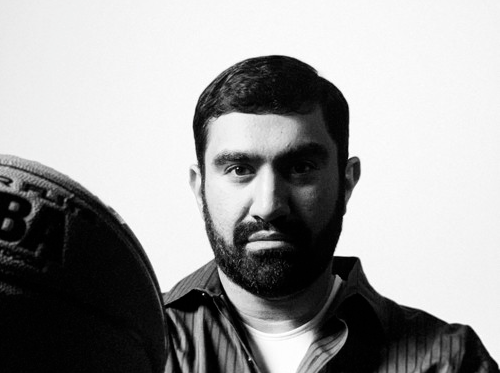Sports Media Enters 3rd Wave: The Rise of Athlete Podcasters as the Next Billion-Dollar Brand Builders (Part 1/2)
The Surge in Sports Audio Deal Activity
Over the past week there have been four new announcements about sports audio:
-
JJ Redick, a veteran player for the NBA’s New Orleans Pelicans, announced a new podcast production company in partnership with Cadence 13
-
Dylan Pugh, a former professional rugby player and most recently an EMEA Spotify exec, announced his intent to build Pomodo, a “network of premium quality sports and lifestyle podcasts”
-
CC Sabathia, six-time MLB All-Star, and his three year old R2C2 podcast with Emmy-winning sportscaster Ryan Ruocco, will now join The Ringer / Spotify, moving over from The Undefeated / ESPN
-
Blake Griffin, a player for the NBA’s Detroit Pistons, released his Audible Original podcast, The Pursuit of Healthiness. It has already been picked up for a second season
The above news builds upon an incredible amount of sports podcast activity in the first half of 2020. Ranging from M&A, fundraisings, slate launches, and high profile talent and company partnerships:
-
Landmark deals like Spotify’s $200M+ acquisiton of The Ringer and Penn National Gaming’s investment in Barstool Sports valuing the company at $450M (which we wrote about earlier this year)
-
In July Twitch inked a deal to livestream Entercom’s sports radio talk shows as video simulcasts across six local markets in the US
-
Barstool’s launch of three player-hosted podcasts: acquisition of Bussin’ with the Boys by two normer NFL teammates, NASCAR partnership for Rubbin is Racing, and 2Biggs hosted by ex-NFL player Willie Colon
-
In June WWE doubled their podcast slate from two to four shows, in partnership with Endeavor Audio
-
Reports in May that Amazon is exploring investments in local sports content as a potential supplement to its streaming rights for the NFL’s Thursday Night Football
-
Blue Wire’s $1.2M seed funding in February, with ex-NBA star Baron Davis joining the company as a podcaster, investor, and brand ambassador
The list goes on. So why all the sports audio activity?
The Democratization of Sports Storytelling: Access to Sports Fans Without the Need for Costly Live Sports Rights
Modern sports media uniquely enables personalities, ranging from athletes and journalists to sports enthusiasts, to rapidly build fandoms and new digital media businesses. It’s a major shift from traditional sports media models, where success was soley derived from premium rights deals.
A brief overview of the traditional TV network sports model.
Traditional TV networks like ESPN and Turner built diverse media businesses based on exclusive access to sports rights, or the ability to exclusively broadcast leage games and highlights at the national and / or local level. With the majority of value generated from the games’ video feeds.
The network video strategy was the following:
Pay a lot of money to have exclusive broadcast video rights to various league games. Be the sole destination for fans who want to watch the tentpole competitions. Add commentators, and multiple pre-game and post-game shows. Feature game clips to enrich the adjacent programming. Build as much content around the game-driven audience moment. Feature more game clips in weekly highlight formats, with no need to strike new highlight rights deals. Recruit former players and convert them to TV broadcasters. Acquire new athlete fanbases to watch your channel.
This traditional sports media model allowed the aggregation of highly coveted TV-viewers, which translated to premium advertiser revenues and carriage fees. And this media rights model is still driving meaningful TV network revenues and premium rights deals, though pricing dynamics have evolved due to the proliferation of sports gambling, media market fragmention, and an expanded pool of rights bidders (we explain here).
But new digital media models, and particularly those built upon audio, means that startup sports media companies can access sports fans without the need for live rights.
New digital media models delight modern sports fans. And why unmet content demand is paving the way for rapid sports podcast growth.
Sports fans crave the tentpole gameday moment. And all the action and drama that takes place off the court. Like the locker room. Draft picks. Sports betting. Everything and anything that happens among the league, franchise owners, coaches, players, and fans. And for athletes in particular, fan interest is extending well beyond related sports activity—and into general lifestyle.
And the action and drama is neverending. A real time, endless feed of entertainment. It’s nearly impossible for TV networks to keep up on everything. So they curate as best they can.
But fans want more.
Which first drove the growth of digital and social-native sports brands like Bleacher Report, SB nation, House of Highlights, Barstool Sports, Ringer, Uninterrupted, The Athletic, WAVE.tv and Undefeated. Leaner content production models, and higher volume output.
So the market for sports content grew, and began to take new form.
Leading to outsized followings of athlete’s social media channels. Instagram is a great case study: four of the top ten most-followed accounts are current and former athletes, the top 25 most-followed NBA players average 8M followers each, and the average NBA player has 710K followers.
Which inspired bigger athlete-centric media bets. Like OTRO, which launched in December 2018 with $64M in funding, and former NFL player PatMcAfee who left Barstool Sports in Aug 2018 to start his own multi-platform sports media company. And most recently, LeBron and Maverick Carter’s launch of new media company SpringHill Co. with $100M in funding.
But fan appetites for sports and sports-adjacent entertainment is still far from satured.
And podcasting is turning out to be an incredible new medium to both meet the unmet consumer demand, and even create new fan interest via experiments in new podcast-only formats by athletes and other sports enthusiasts. Which explains the rapid growth of The Ringer and Barstool Sports when they increased focus on their podcast publishing (though each company’s founder actually spent decades building their personality-led media brands), the many other new entrants we list at the start of this article, and why four of the top ten podcast networks are sports / entertainment focused.
Podcasting presents a massive new opportunity for sports media, and particularly athletes who we at RockWater believe will power the next general of digital brand building, yet who are wildy underserved as media personalities.
Podcasting has a few advantages to video when it comes to sports storytelling:
Rapid and lean production processes. Results in lower time commitment and recording flexibility relative to linear, and even social and digital, video. More premium sports formats like interviews and multi-personality programs require significantly less production time as a podcast. Meaning current athletes can now participate in, and even build, media brands without disrupting their day-to-day routine.
Previously, athletes would have to wait until retirement before joning a network broadcast show, which required in-studio and on-location commitments. Now athletes record from their hotel rooms, bus, and locker room—a big win for fans who crave the intimate lifestyle access and day-day-day player insights.
And the lean podcasting model also comes with creative flexibility. It provides athletes (as well as journalists and enthusiasts) an alternative to being on camera for a post-game network interview or IGTV livestream, yet who want to contribute in real time, and in longer form than a tweet, to the sports zeitgiest.
…some media personalities are best when there are no cameras rolling!
Unfiltered and unregulated. TV networks and radio have traditional ownership and government regulation. Athletes can’t just speak their mind and use their everyday parlance on those channels. They could face fines and even fan backlash, since audiences range from parents to children (e.g. ESPN is owned by Disney). And even social platforms are significantly ramping up their content moderation due to advertiser and consumer interest group concerns.
The same doesn’t apply to podcasts. RSS feeds are an open protocol and aren’t regulated (though that could change). And sports podcast company owners are increasingly players or commentators themselves, and encourage the raw talk. And advertisers are on board.
Great companion content. With podcasting and video, it’s not either or. They’re highly compatible. For example, fans can still watch the game on TV or new social video platforms like Twitch, mute the audio, and then play a live podcast with the commentators they prefer. This aligns with the growing trend of personalization in the fan content experience, which is happening across all of traditional sports, esports, and gaming. And podcasts complement social extremely well. As CBS radio exec Jeff Gerttula explains,
“We have original content on the podcast every morning that’s waiting for you when you wake up, but we also have ‘Pick Six’ social channels, where we can be with you during real-time coverage of games.”
And all the other standard podcast advantages. Consumption flexibility via on-the-go listening and multi-tasking. A new sense of listener intimacy. Etc.
Overall, the podcast market is growing rapidly. One third of Americans age 12 and over (104M) are consuming podcasts regularly, up 16% year over year. And podcast advertising is forecast to be $1B by 2021, a nearly doubling in just a couple years.
The consumer and advertiser demand is there.
But the market is still very nascent. And we believe the supply of content is still limited. Even at current estimates of 1M+ podcasts, that feels like just the first inning. Listenership will grow as more supply enters the market. The current sports podcasting upstart bets are smartly taking advantge of this market opportunity. Give the fans more story, and the athletes the ability to tell their stories that they can’t tell elsewhere.
This market is just beginning to heat up, and we expect a lot more sports podcast activity over the coming year.
So, How Can Sports Podcasters Take Advantage of this Billion-Dollar Media Brand-Building Moment?
Empower professional athletes. Teach them how to build careers that are bigger than the game, and that extend past gameplay retirement. Give them the guidane and resources to succeed. And find those who want to put in the work and commitment, and do right by their fans and the sports community. Dylan Pugh, the founder of new sports podcast network Pomodo, touches on this point in the first episode of his self-hosted podcast about launching his new company.
AND empower college athletes. Potential new rule changes by the NCAA will allow college athletes to monetize their name, image, and likeness. It’s an incredible opportunity to build sports media brands earlier in the athlete career lifecycle.
AND empower sports enthusiasts. From influencers and Hollywood celebrities to journalists and even quick-witted fans. Like when Bill Simmons hired Jason Concepcion for Grantland after noticing his funny NBA insights on Twitter. Now Jason and co-host Mallory Rubin have pop culture hit Binge Mode on The Ringer, one of the network’s most successful multi-platform media properties. And we wonder…might Conan O’Brien or his two CONAF podcast co-hosts have a sports POV? We’d love to hear that if so!
Make podcasts compatible with other sports media. Be inspired by gamers and their Let’s Play YouTube videos and Twitch livestreams.
Use audio as shoulder programming. Build anticipation for tentpole events by developing personalities and storylines. The WWE is expert here.
Build upon the boom in premium sports documentaries. Many new show announcements have followed ESPN’s The Last Dance about the Bulls and Michael Jordan. Audio can help tell the stories where less video footage is available.
…read part two of this industy report, where we’ll expand on the above ideas and propose a few more.
—
Ping us here at anytime. We love to hear from our readers.



